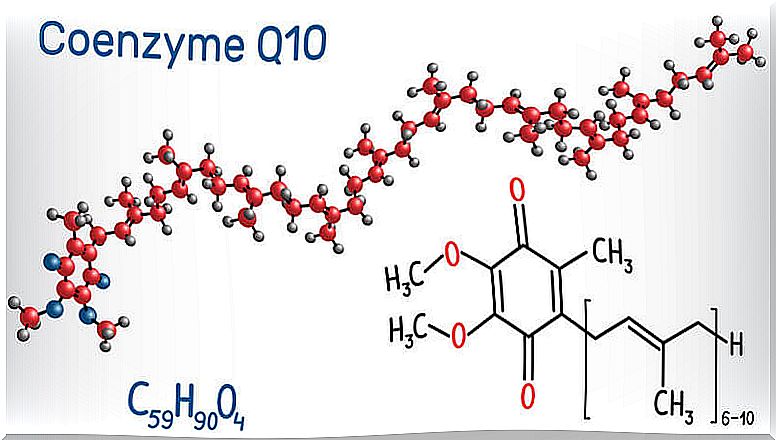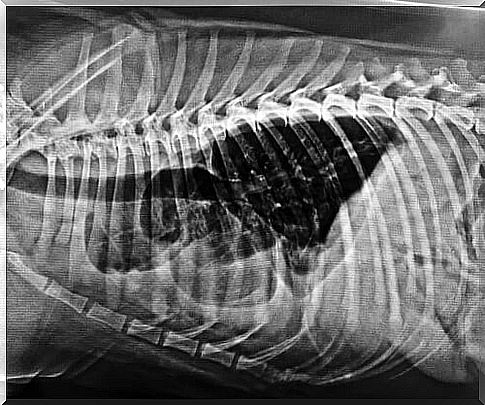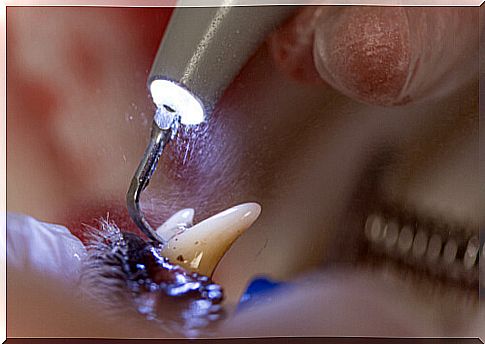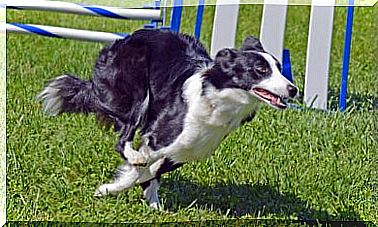Benefits Of Coenzyme Q10 For Dogs: Scientific Evidence

Today the benefits of coenzyme Q10 for the treatment of canine diseases are recognized. It should be known that coenzymes are a type of biological substance that exists in the body of our dogs, and also in ours.
In the case of Q10, it is known to be highly abundant during childhood and youth, and to decline in old age, hence many supplements try to replace this component.
Currently, a body of scientific evidence confirms the benefits of coenzyme Q10. These studies have confirmed its value as a nutritional supplement for the treatment of various ailments. In this article you will find out about the news in the use of this supplement.
What is coenzyme Q10?
Coenzyme Q10 (CoQ10), also known as ubiquinone, is an endogenous, lipid-soluble compound that exists in all cells of humans and animals.
This is a vitamin-like substance, found throughout the body in humans and animals. It is especially abundant in the heart, liver, kidneys, and pancreas.
Thus, this substance is produced naturally by your dog, but it can also be obtained from the diet. Foods that contain high concentrations of CoQ10 include fatty fish (salmon, mackerel, sardines), organ meats, and whole grains.
Coenzyme Q10 is most often used for heart conditions, such as heart failure and fluid buildup in the body (congestive heart failure or CHF).
How does coenzyme Q10 work?
CoQ10 is a powerful antioxidant and reduces damage to cells caused by free radicals (these are molecules that have been changed by oxidation and cause damage to cells).
For this reason, those organs with the highest energy requirements, such as the liver, heart, and kidneys, have the highest amounts of CoQ10.
CoQ10 deficiency in dogs
There are two main factors that can lead to a CoQ10 deficiency: that the body produces less CoQ10 or that there is more use by the body.
Endogenous synthesis is the main source of CoQ10. Old age and various diseases, including some that are inherited, can cause this coenzyme deficiency.
Benefits of coenzyme Q10 in the treatment of canine diseases
Cardiovascular disease
CoQ10 levels have been shown to be lowered in the hearts of pets with heart disease. Accordingly, the most common use of CoQ10 in dogs is as an adjunct in the treatment of congestive heart failure.

Periodontal disease
Among the benefits of coenzyme Q10 is that it can help in the treatment of periodontal or gum disease.

CoQ10 supplementation has been shown to reduce the size and improve the health of periodontal pockets. It does this by decreasing inflammation, redness, bleeding, and pain.
Since most pets with heart disease also have periodontal disease, supplementing with CoQ10 may offer an additional benefit by being effective in both conditions.
Canine cognitive dysfunction syndrome (DCC)
Canine cognitive dysfunction syndrome (DCC) is an aging-related neurodegenerative disease. There is a marked similarity between DCC and Alzheimer’s disease in humans.

Scientific studies reveal that the best treatment option is to combine pharmacological and nutritional therapy. As a nutraceutical, the incorporation of CoQ10 into the treatment of CCD has been tremendously successful.
Others
CoQ10 can help prevent heart damage caused by certain types of cancer chemotherapy, such as adriamycin.
Be aware that because the antioxidant activity of CoQ10 could interfere with the action of other chemotherapy drugs. For this reason, consult your veterinarian before using CoQ10 if your dog has cancer that requires chemotherapy.
CoQ10 can also increase the effectiveness of other antioxidants, such as vitamin C, and help with immune problems, diabetes, and reduced physical performance.
How safe is coenzyme Q10?
As a supplement, CoQ10 appears to be extremely safe. And it should be noted that no significant side effects have been found.
However, veterinary supervision is recommended to ensure pets with severe heart disease are improving, and any decline in function is addressed.









